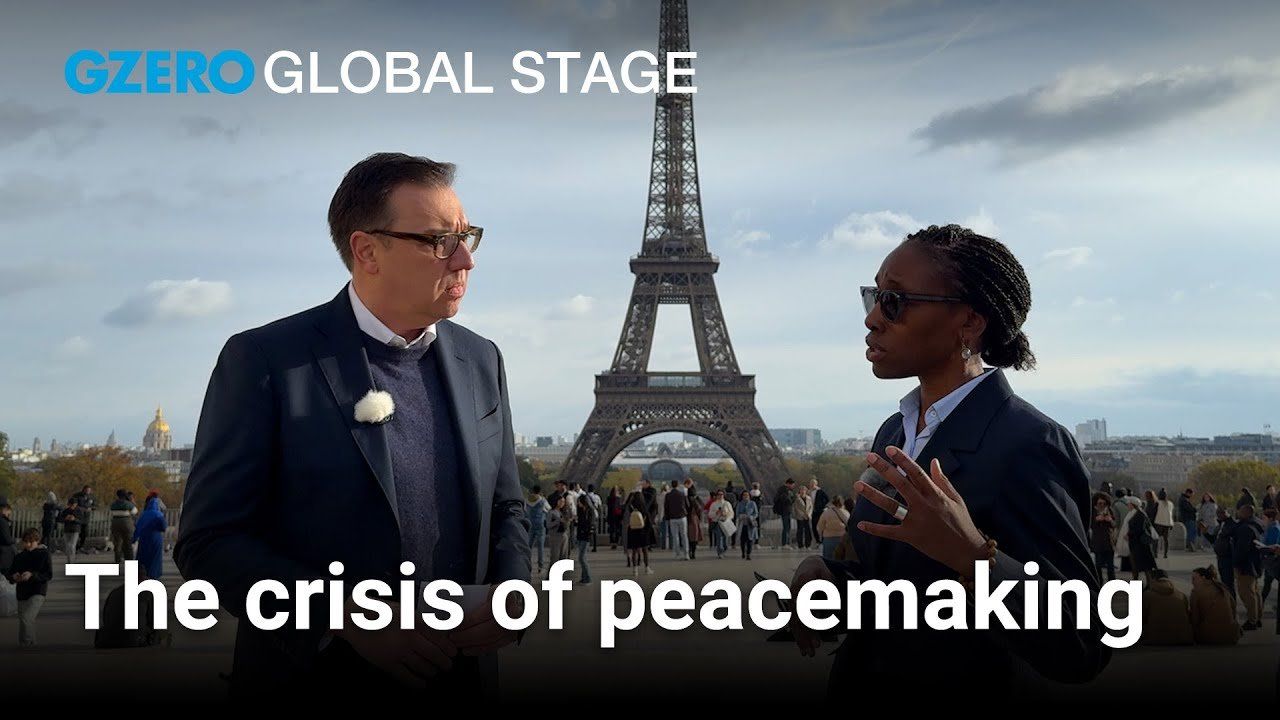November 11, 2024
In a GZERO Global Stage discussion at the 7th annual Paris Peace Forum, Dr. Comfort Ero, President and CEO of the International Crisis Group, shed light on the increasing elusiveness of global peace amid rising conflicts worldwide. She pointed out a "crisis of peacemaking," noting that comprehensive peace processes and settlements have become rare, with the last significant one being in Colombia in 2016.
"We are in the era of big power rivalry and a multipolar world where there are more actors piling in... competing interests, competing visions," Dr. Ero explained. She emphasized that traditional tools for nudging conflicting parties to the negotiation table, such as sanctions, are no longer effective, and the United Nations Security Council is becoming increasingly dysfunctional.
Highlighting the complex situation in Sudan, Dr. Ero described it as a significant crisis that lacks the media attention given to conflicts like those in Ukraine and Gaza. "We're talking, by the way, 20 years on from Darfur when we said never again. And here we are, and Sudan is on the verge of collapse," she warned. The conflict has led to millions being displaced and a dire humanitarian situation, with neighboring countries like South Sudan and Chad bearing the brunt of refugee inflows.
On the topic of United Nations Security Council reform, Dr. Ero was skeptical about the permanent five members relinquishing their veto power or extending it to others. "The P5 will jealously guard the veto power and will make sure that that is not watered down," she observed, raising questions about the Council's influence in the future.
This conversation was presented by GZERO in partnership with Microsoft at the 7th annual Paris Peace Forum. The Global Stage series convenes heads of state, business leaders, and technology experts from around the world for critical debates about the geopolitical and technological trends shaping our world.
Watch the full conversation at https://www.gzeromedia.com/global-stage, and watch out for more GZERO coverage of the Paris Peace Forum this week.
More For You
Nearly four years into Russia's invasion of Ukraine, the push to end the war is intensifying. The past few weeks produced not one but two proposals.
Most Popular
Sponsored posts
The AI economy takes shape
What's Good Wednesdays
What’s Good Wednesdays™, December 3, 2025
Walmart sponsored posts
Walmart's $350 billion commitment to American jobs
- YouTube
Ian Bremmer breaks down why the latest Russia-Ukraine “peace push” is headed back to Moscow and why the outlook is bleak.
Luis Fernando Cerimedo, advisor of Presidential candidate Nasry Asfura of the National Party of Honduras (PN), speaks during a press conference after the general election, in Tegucigalpa, Honduras, December 1, 2025.
REUTERS/Jose Cabezas
There are close presidential races, and then there’s the one in Honduras, where just 515 votes separate the top two candidates following Sunday’s election in the Central American nation.
© 2025 GZERO Media. All Rights Reserved | A Eurasia Group media company.
